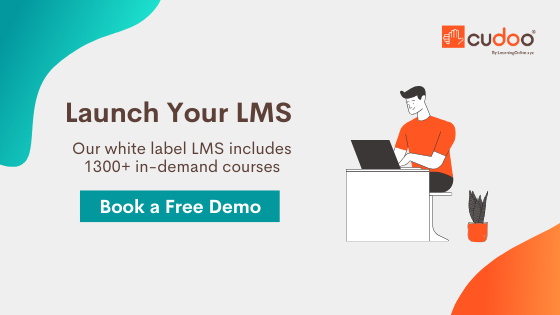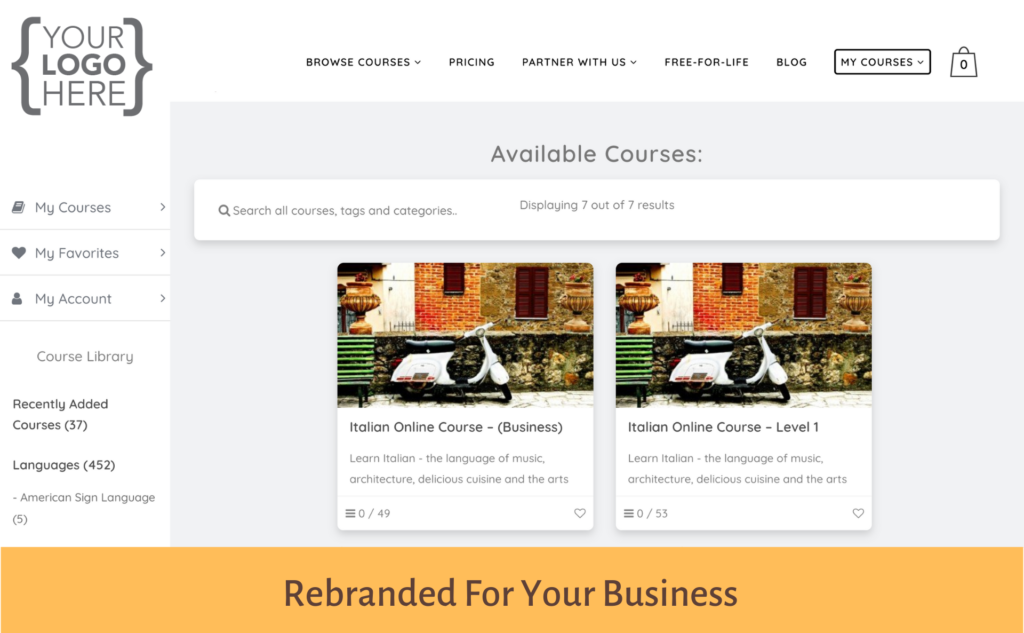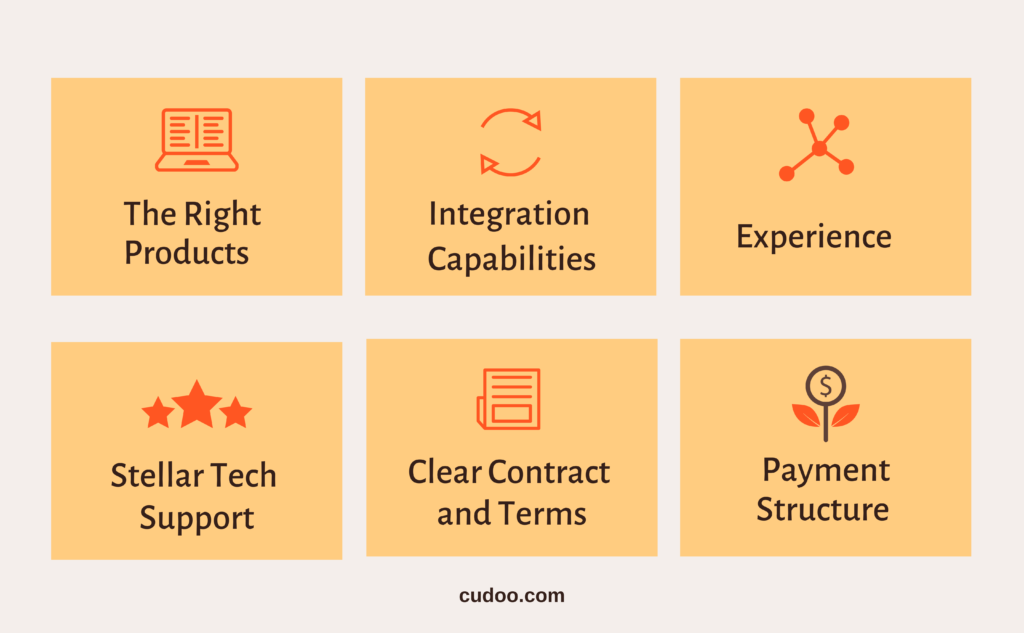In 2020, online learning services made a huge leap. More people are doing things remotely and many are turning to online courses to develop new skills or upskill and stay relevant and competitive.
Many industries are now also looking to offer online training. This creates new income opportunities, adds value, and helps differentiate them as a brand. For example, the travel industry is adding value to travelers by offering language learning options, or the recruitment industry offering eLearning on in-demand skills to better equip new candidates. But, developing a training solution from the ground up is a costly and time-consuming task. A more convenient and affordable option is a white label LMS.
An LMS (Learning Management System) has made virtual learning accessible as eLearning becomes the preferred option for many. You no longer need to be limited by geography or physically present in a classroom for quality education. Accessibility, flexibility, affordability, and a huge choice of courses are some of the benefits of online learning. In this article, we will discuss the benefits, features, and what you need to look for when choosing an LMS.
What is a White Label LMS?
An LMS is a software platform that helps create, manage, and deliver eLearning courses. It can combine text, images, videos, and quizzes, and because the learning material is more engaging, users tend to learn more and retain knowledge longer. A white label LMS provides the opportunity for organizations to customize the platform with their branding and market it as their website, intranet, or stand-alone domain. The best and most cost-effective white label LMS comes complete with a wide selection of course libraries already included.
Difference Between White Label and Private Label
Both terms are often used interchangeably, however, there are key differences between the two. Private Label applies to a physical product sourced by a manufacturer and sold by the retailer under their brand name. While a white label applies to a service, predominantly in the software and technology industry.
White Label LMS Benefits
There are many advantages to white labeling your LMS. It makes your LMS design consistent with your business’s so it’s recognizable to your audience. Below are a few other reasons why you should consider a white label.
Quick Launch of New Products
If you want to follow market trends or need to capitalize on an opportunity and need to quickly add courses to your platform, a white label LMS can get you set up in days, not weeks or months.
Low Cost
A white Label LMS is substantially cheaper in comparison to developing your own customized software. It would save your business a lot of time, effort, and money spent on hiring a team of developers, UX specialists, instructional designers, course developers, etc, etc.
Increases Business Revenue and Profits
By expanding product offering or adding a new service option, businesses and entrepreneurs can penetrate new markets and create new revenue streams. Typically, the new service option is used to upsell, downsell, or as an added complimentary benefit. You can set your own price structure for courses depending on your business strategy.
 Focus on your core business
Focus on your core business
The do-it-yourself approach is not always the best strategy for a business especially if it means you need to stretch your resources to do something that doesn’t fit within your core competencies. Opting for a white label solution allows you to focus on your strengths and your business instead.
White Label LMS Features
Not all white label solutions are created equal. Some allow you to only add your logo while others are much more personalized.
Branding: This includes logo and color schemes. For example, with Cudoo’s LMS you can add your logo on the eLearning portal, and the login page and change colors to reflect your brand’s identity.
Portal: This is where your learners will spend the majority of their time. In addition to your logo, you should also have the option to include custom banners and welcome text.
Multi-Portal: If you need to create sub-portals for different audiences, then a multi-portal option is an important feature you should look for in an LMS. For example, with Cudoo’s LMS you can have multi-portals, each one unique for each audience group.
Custom Domain: With some solutions, you can only partly customize your domain. With Cudoo you can completely customize your URL without revealing the identity of the LMS provider. For example, your URL can look something like this: elearning.mycompany.com
Customized Certificates: After successfully completing a course, learners usually showcase their new skills with a certificate. You always want to choose an LMS that allows you to issue your own custom certificates which include your brand logo. This is a great way to increase your brand awareness.
What to Look for in an LMS Partner?
Choose What’s Right for Your Business
This is an important one. You should choose a solution that’s user friendly and continuously works on enhancing their online courses. Also, having the option of choosing from a wide range of course categories, can help you select the right courses for your business and learners. It’s always a good idea to request a demo to get a feel for the platform and how it works.
Integration Capabilities
Your new LMS should easily integrate with your current systems. A cloud-based system is the most versatile and should include an end-to-end service, from a front-facing webpage, a powerful backend learning system, and detailed reporting, to an efficient payment gateway at the end of the customer journey.
An Experience White Label LMS Partner
Choose a provider that is transparent and upfront. You want to make sure you work with someone that has extensive experience in their field. Setting up your LMS is a special process and you want someone knowledgeable to guide you through it.
Stellar Service and Tech Support
One of the advantages of having a white label is that you don’t need to worry about troubleshooting or offering technical support to your learners. This is why you need to pick a solution that responds in a timely manner and is ready to go above and beyond to meet expectations.
Clear Contract and Terms
Contracts and agreements are important for conducting business as it sets the expectations and obligation for both sides. Make sure the terms and conditions are clear and detailed. Don’t be afraid to ask questions before signing on the dotted line.
Payment Structure
Most white labels offer the software for free but work on a monthly recurring pay per user (PPU) model. This may quickly get out of control and is designed to benefit the solution provider and not the partner. The other option is a fixed yearly subscription, allowing you to scale without having to worry about increasing costs. Our white label LMS is structured around a fairly priced annual fee and unlimited users.
Conclusion
eLearning is one of the fastest-growing sectors and implementing an LMS can create exciting opportunities for your organization. Obstacles such as lack of time, expertise, and resources are often the reason why businesses don’t have their own LMS. A white label solves all those problems giving you a fast and easy way to tap into the world of online learning without the need to increase your bottom line. Many have been able to grow their business and increase their revenue with the implementation of an LMS.
Interested in exploring more? Sign up for a free demo today.
Andrie Steliou
Latest posts by Andrie Steliou (see all)
- 8 Ways to Help Keep Your Child Focused and Engaged in Online Learning - October 19, 2022
- How to Improve Social Intelligence Skills? - May 10, 2022
- How to Improve Organizational Skills at Workplace? - May 6, 2022




